Loneliness can be compared to a thick winter’s fog.
It stifles and strangles you, pulling you under a heavy blanket of depression, pervading all that you see.
Loneliness causes you to filter life through a lens of emptiness and despair. Your spirit may become so heavy with the weight of your isolation that you often feel like laying down, shriveling up, and dying.
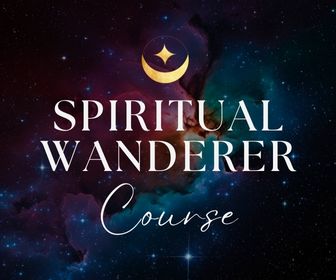
Spiritual Wanderer Course:
Find your deepest path and purpose in life as a spiritual wanderer. In this immersive course, you get 3+ hours of content, workbooks, meditations, a premium test, and more!
Sound dramatic?
It many ways, it is.
Loneliness has been linked to an increase in health issues such as dementia, stroke, heart disease, and premature death.
And interestingly enough, loneliness isn’t just an issue faced by singles, widowers, disabled folks, or the elderly – it’s also greatly troubling Millennials, who, due to the impact of social media, are finding themselves feeling more and more isolated.
Whether you feel loneliness in a crowd, in your marriage, in your workplace, friend circle, religion, culture or simply by being yourself, there is hope.
Yes, it’s possible to not only learn how to deal with loneliness, but to also give it a greater meaning and purpose – I’ll show you how (based on painful personal experience) in this article.
Table of contents
Loneliness: You’re Not Alone

As humans, it’s our tendency to believe that we’re the only one in the world feeling the deep level of isolation we’re experiencing. But what we fail to realize that loneliness is a worldwide epidemic. And no, you’re NOT alone – at least in experiencing it.

Shadow & Light Membership:
⭐️⭐️⭐️⭐️⭐ "Shadow and Light’s weekly guidance always rings true to my heart. Thanks for acknowledging my shadows and inviting my inner light. I always get excited to open the Shadow and Light emails on Sunday!" – Angela M.
Here are some shocking findings from numerous studies/sources which will help you to see how common this issue is:
- Loneliness affects close to 47% of Americans (source)
- In Japan, there are more than half a million people under the age of 40 who haven’t left their house or interacted with anyone for at least six months (source)
- One in four Australians feel lonely at least once every single week (source) and one in five Australians rarely or never have anyone to talk to when they need help (source)
- 30% of Millenials said they always or often feel lonely compared to 20% with Generation X and 15% of Boomers (source)
- 9 million people in the UK across all ages are either always or often lonely (source)
- More than 60% of married people struggle with loneliness (source)
- 49% of older people in the UK say that television or pets are their main form of company (source)
… and the statistics keep coming and coming. The list above is only the tip of the iceberg!
Can you see how widespread loneliness is and that you’re not alone as you think you are?
Why Are We Lonely? (13 Possible Reasons)

While loneliness might be universally felt, the reasons why we feel it are unique for each person.
For example, I felt lonely for many years due to the trauma of being brought up in a fundamentalist Christian religion that isolated me from everyone. Being taught that outsiders were “evil” caused me to distance myself from everyone which caused a deep-seated sense of loneliness. (Thankfully, I left religion over a decade ago.)
Other reasons why we can feel lonely often include:
- Death of a spouse, child, family member, or loved one
- Estrangement from family members
- Lacking access to quality relationships where we can share our deepest thoughts, feelings, and beliefs (this can be due to numerous reasons, such as working too much, living in a community that doesn’t meet your needs, struggling to connect to likeminded people, etc.)
- Undergoing a quarter life crisis, midlife crisis, or existential crisis
- Living alone unwillingly
- Possessing different values or beliefs from the vast majority of those around you
- Undergoing a spiritual awakening process
- Experiencing a dark night of the Soul
- Poor, underdeveloped, or neurodivergent social skills
- Mental health issues such as anxiety and depression
- Childhood trauma and later-life trauma (this also includes being in toxic relationships, struggling with narcissistic family members, physical/emotional/mental abuse, etc.) causing issues like PTSD, C-PTSD, and other trauma symptoms
- Having a disability (such as autism, ADHD, etc.)
- Chronic health issues (like fibromyalgia, chronic fatigue, etc.) and other physical disabilities
However, perhaps one of the biggest overlooked reasons why many of us struggle with loneliness is because we lack a deep connection with our soul – the deep spark of love and wisdom within us. This issue is known as soul loss.
Ultimately, loneliness is very subjective. For example, someone living alone with no friends might seem lonely to an onlooker, but on the inside, they might be perfectly content and relaxed.
On the other hand, a person with a big family and successful career might seem happy to the general public – but inside, they might feel totally and utterly alone.
There really is no one ironclad stereotype when it comes to loneliness.
The Deeper Meaning and Invitation of Loneliness
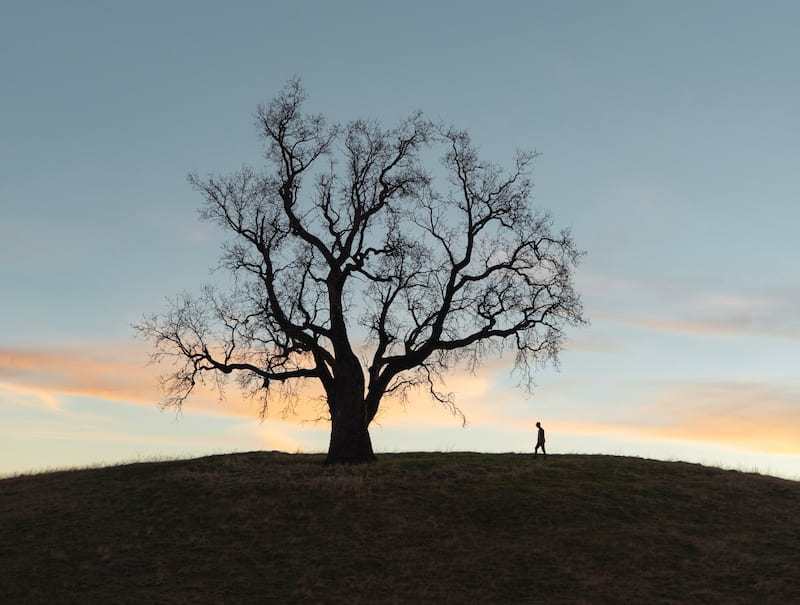
Although loneliness seems pretty straightforward on the surface, I would argue that loneliness actually contains within it a great secret.
And that secret is that loneliness can be a doorway to reconnecting with our Soul and an invitation to seek out our True Nature beyond our limited ego selves.
There is a certain wisdom inherent in loneliness in that it teaches us that nothing outside of us can truly make us happy, because everything and everyone can be taken from us in an instant.
Would you like to save this?
Your information will never be shared.
Our loved ones can die, we can grow distant from our partners and children, we can lose close friends, and we can grow discontent or disillusioned with our various social groups. Literally anything that we rely on as a crutch to avoid being lonely or alone can vanish in an instant. This is a reality that most of us prefer to avoid, but loneliness throws this harsh reality back into our faces to deal with directly.
One of the major reasons I began this website (“loner-wolf”) in the first place is that I had come face-to-face with the joy, despair, and wisdom within being alone and facing loneliness.
Loneliness strips our life down to the essentials. It asks us to examine what truly makes us happy, how we can find joy without depending on the external world, and go more deeply inwards in search of our true home.
Loneliness encourages Soul searching, self-reflection, contemplation, independence, self-reliance, self-sovereignty, and a more conscious relationship to the world around and within us.
Without loneliness as a slap on the face to wake us up, asking us “what is it you plan to do with your one wild and precious life?” (in the words of poet Mary Oliver), it’s likely that we would just amble through life doing and thinking what everyone else does.
Like unconscious automatons running on a capitalistic treadmill that is slowly destroying the world, our lives may have very well just trickled away meaninglessly without the clarion call of loneliness to graciously disturb us.
Now, I understand that loneliness is not always so meaningful for everyone (although, I challenge you to not find a deeper meaning in it). For some people, loneliness is a sign of deep depression or even suicidal desolation. So if that is the case, by all means seek to avoid loneliness. Find help. You can access a list of suicide hotlines here if you do feel this urge.
With that aside, loneliness is often a sign of the spiritual awakening journey – and more specifically, the dark night of the Soul in which one feels alone in the world and separated from anything Divine.
But as uncomfortable as the dark night can be, it helps us to tune out of the external world and listen to the deeper inner call, giving us the incentive and motivation to reconnect with something greater than our individual selves.
You can watch a video we created on the spiritual purpose of loneliness below:
How to Deal With Loneliness (Healing Paths)

If you’re suffering from chronic loneliness – which is an epidemic that’s increasing in our society according to numerous studies – please know that it is possible to transform this experience into something positive. And you don’t even have to put in too much effort in most circumstances.
As someone who has had a lot of experience with loneliness (I’ve spent a large portion of my life feeling lonely and isolated, even around others), I’ve compiled a list that I hope will help you learn how to deal with loneliness below:
1. Learn to have fun by yourself again

Loneliness is not cured by human company. Loneliness is cured by contact with reality, by understanding that we don’t need people.
— Anthony de Mello
This was perhaps one of the most surprising but fun methods I used to learn how to deal with loneliness.
When we lose friends or family members – or simply drift away from everyone around us – we tend to lose all sense of fun and playfulness, often preferring to wallow in our misery instead.
Realize that you can have fun alone and that you don’t need to rely on others to make you happy. The person who can enjoy life alone can never have happiness taken away from them – to truly understand this is liberating!
I know it sounds wacky and a little juvenile (well, I was 19), but my journey with regaining my playfulness started in the bathrooms of a well-established university. Sick of the day-to-day drabness of socially isolating study, I printed out flyers about diarrhea and stuck them all over the walls and mirrors of a women’s bathroom. (I never knew how liberating fecal matter could be!)
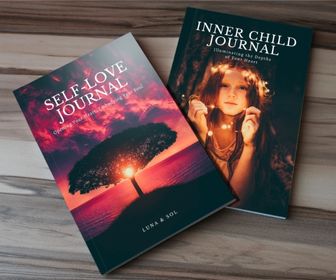
Inner Work Journal Bundle:
⭐️⭐️⭐️⭐️⭐ "I highly recommend this. Each journal is beautifully designed, with ample room for reflection and gorgeous supporting images and quotes. Anyone who uses these journals is likely to experience a priceless payoff." – D
But you don’t have to do something as wacky as I did to learn to have fun by yourself again. Start by doing something small that you enjoy, and take it from there. Perhaps you decide to take yourself to a move alone, explore a new part of town, or buy yourself some flowers.
Yes, it is possible to regain much of what you have lost, all by yourself. You will be a stronger and better person that way. Why? Because you won’t rely on, or use, other people for your entertainment.
2. Learn to laugh again

Laughing has been scientifically proven to benefit your health. But what happens when you’re lonely? Well, chances are, you don’t laugh much. Or at all. (I know that I didn’t.)
When you really think about it, we greatly we rely on others to make us happy, sometimes too much so. That’s why learning how to laugh again, by yourself, is so important – it empowers you!
If you find it hard to find something to laugh about, try putting on a funny film or go on Reddit and subscribe to threads like r/ThereWasAnAttempt, r/Funny, or r/ContagiousLaughter.
Not only does laughing take your focus away from yourself and your misery, but it replenishes those endorphins in your brain again, making you feel happy. Seeking to laugh is probably one of the most enjoyable ways of learning how to deal with loneliness.
3. Practice mirror work

Spend quality time with yourself, just like you would with a friend or someone you love. One powerful way of doing this is by practicing something called mirror work. Mirror work is simple, and all it requires is a mirror, openness, and some free time.
To practice mirror work for the purpose of connecting deeply with yourself, spend five minutes a day gazing gently at yourself in a mirror. I understand how bizarre that might sound, but staring deeply into your eyes and smiling every time you see yourself really makes you feel happy (even if it takes a little bit of practice). But don’t believe me – try it out for yourself!
One result of this strange practice is an increase in self-love and self-acceptance – especially when you pair this practice with loving affirmations such as “I accept you,” “I forgive you,” “I love you,” etc.
Every day we tend to look at ourselves in the mirror to pamper and preen, but we only do it superficially. But have you ever stopped to stare at yourself – earnestly? Try it, and you may be blown away by how much self-awareness and self-compassion you can develop.
4. Become your own best friend
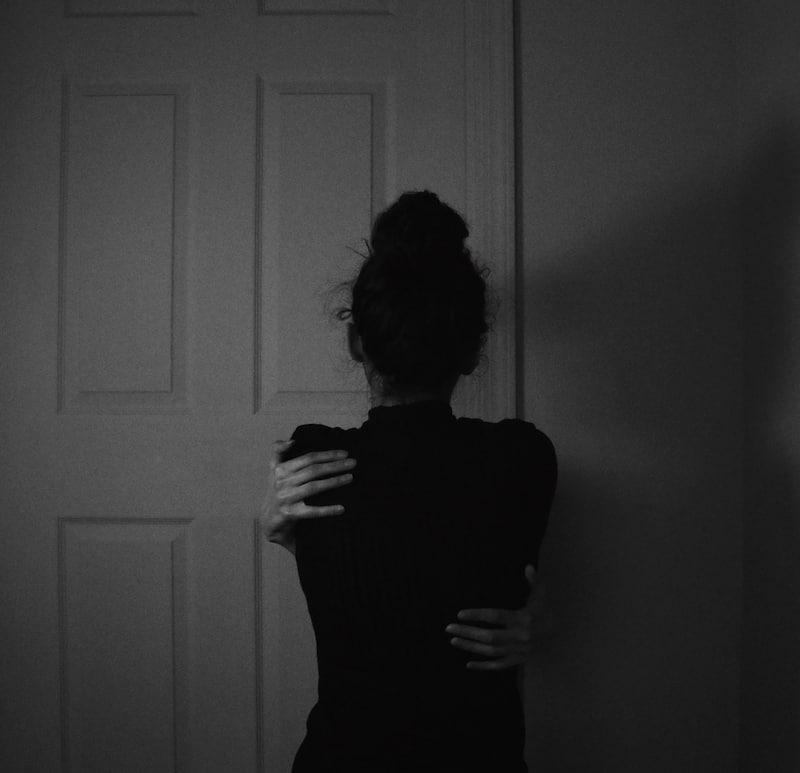
I’m sure you’ve had a best friend in the past that now, for one reason or another, has drifted away.
Even if you’ve never had a best friend before, how do you observe best friends treating each other on TV? Most people would say that best friends treat each other with kindness, care, and consideration.
Let me ask you a question: do you treat yourself with kindness, care, and consideration? If not, why? Why can’t you be your own best friend? What is it about yourself that you’re so insecure about? Don’t you deserve love and respect just like everyone else? (If you struggle to answer this question, you might like to look into your core beliefs.)
Many people falsely believe that a best friend can only be someone else. But this is an absurd idea, because how can you learn to love and appreciate people truly if first you don’t love and appreciate yourself? It’s still possible to love others when you don’t love yourself, but it’s much harder and requires more effort.
To become your own best friend, treat yourself kindly. Compliment yourself. Be considerate towards yourself and respect your strengths and weaknesses.
Here are some further resources you can explore to help you become your own best friend and learn how to deal with loneliness better:
- How to Love Yourself (No Bullsh*t Guide)
- 39 Self-Care Ideas For Those Who Struggle With Self-Love
- Self-Love Journal (premium resource and in-depth guidance)
5. Become your own counselor

Loneliness does not come from having no people about one, but from being unable to communicate the things that seem important to oneself.
– Carl Jung
One of the most irritating things in the world is listening to people who moan and complain about their problems but don’t stop to question why they’re happening, or what they can do to solve them.
While it’s natural for us to complain (it can be therapeutic), constant whinging wastes energy and gets us nowhere when trying to learn how to deal with loneliness.
Becoming your own counselor is invaluable because it allows you to explore your problems, rather than wallow in them.
Ask yourself, Why am I lonely? When did it start? How am I feeling? Why am I feeling that way? What can I do to solve my loneliness? (By the way, kudos to you for checking out this article, because, in a sense, you’re being your own counselor right now.) Analyzing your thought processes is a wonderful way of putting them into a new perspective.
When I experienced loneliness I read self-help books, started keeping a journal, and mapped out my issues on pieces of paper to give them a visual perspective. The more I analyzed them and looked at them with different perspectives, the easier I found it to address my inner turmoil. I also highly recommend looking into internal family systems as a rich psychological system if you want to learn how to deal with loneliness better.
Note: being your own counselor doesn’t discount the need to access a trained professional counselor. But if you don’t have the ability, for any reason, to access a trained counselor (such as due to low income), adopting the role of counselor can help you to step into a new part of yourself outside the realm of “the lonely one.”
6. Be near people

By nature, we’re social beings – it’s hardwired into us to crave the physical, emotional, and psychological company of fellow human beings, hence the existence of loneliness. So go out and be near people, even if that just means by proximity.
Go and sit anonymously in a public space. Walk around a library and sit down. Drink something at a cafe with sunglasses on. These simple practices are both entertaining (people-watching is always interesting) and comforting due to the fact that you’ll at least be around others.
Although this point doesn’t necessarily cater to your emotional and psychological needs, it’s a start and was something I definitely found useful while learning how to deal with loneliness.
7. Volunteer and have a reason to be around others
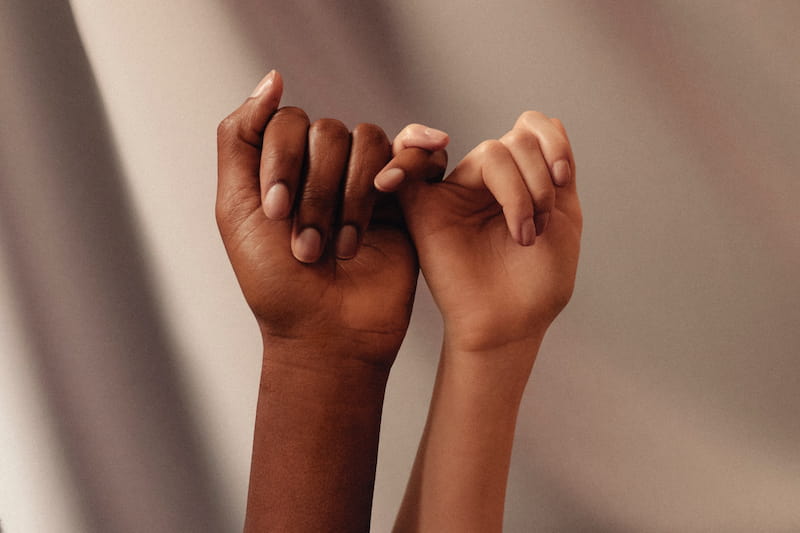
Volunteer or join an interest group. Take small steps to get out of your comfort zone. Check your local newspaper, sign up to a Facebook group in your area, or go on meetup.com.
There are many beautiful, kindred souls to be found in volunteering circles and interest groups. In fact, if you’re looking for a friend, this is the perfect way to meet new people.
Loneliness tricks you into thinking that everyone is alike and that you won’t ever be able to find a kindred soul. But by doing the math, it’s easy to see that we’ll most likely find someone to truly connect with eventually if we seek out a mutual interest, like a crochet group or hiking club.
If you have a certain personality type (like introversion) or disability like autism, try seeking out groups of people who share the same traits and behavioral dispositions. You can start online and build up to eventually meeting in person (if that’s important to you). Similar minds think alike after all!
8. Take care of yourself physically
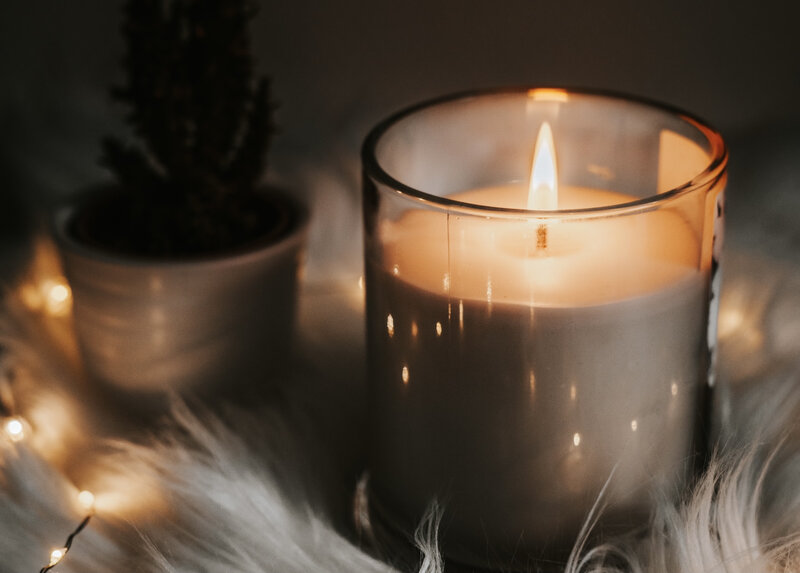
Neglecting yourself when you feel down is tempting. But taking care of your body is the beginning of recovering a sense of self-sovereignty, connectedness, and learning how to deal with loneliness in a healthy way. So be playful. Your body deserves comfort, grooming, and pleasure.
For over a decade, we've strived to make this website a haven of free, valuable information. Imagine a world where this knowledge wasn't readily available. If this post sparked a meaningful insight or helped you in any way, please consider a donation as a heartfelt "thank you" for keeping this resource free. Every contribution, big or small, allows us to keep giving back.
Have a bubble bath. Lie on a soft pillow. Buy yourself a nice treat. Get a massage. Do your hair. Drink some tea or fine wine. The more I respected my body, the more I found respect for myself in honoring my comfort and taking care of my needs.
9. Listen to calming music
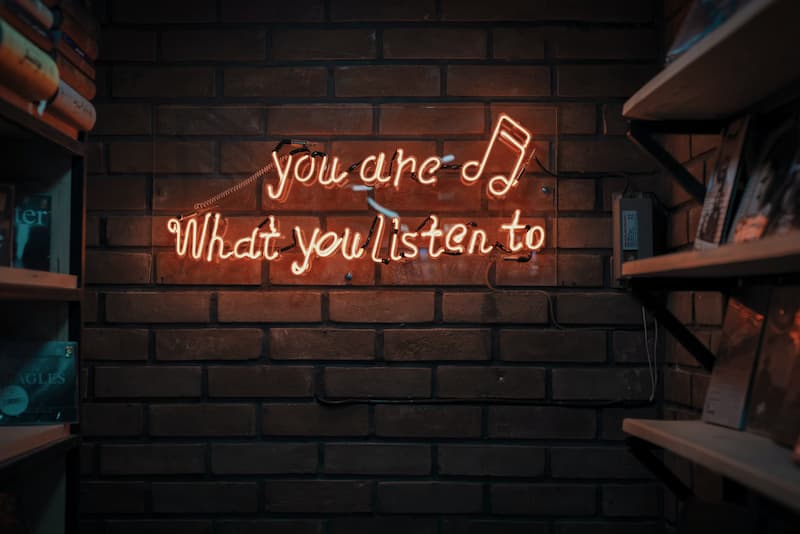
Don’t make the mistake of listening to depressing or dark music to match your mood. While dark music can provide a nice emotional release, often it just winds up making us feel even worse.
Instead, try listening to up-beat, classical, or ambient music (this will increase the endorphins, or happy chemical, in your brain).
If you want some keyword suggestions, get YouTube up on your browser and search for “happy relaxing music,” “ambient music,” “binaural beats positive energy,” “emotional healing music,” “singing bowls,” and so on. I particularly love listening to wind chimes and hang drums: they’re light, ethereal, and uplifting.
10. Learn to love joy more than misery

It’s quite possible that you’re in love with your misery at this very moment in time. I know this sounds bizarre and a little shocking.
Speaking from personal experience, I realized at some point that I was accustoming myself too much to a miserable way of life. After a while, when all we know is isolation and depression, we tend to grow accustomed to this way of living. It becomes the norm. And in a sickly way, it even provides us with a sense of comfort. This means that when we try to break our “norm” of isolation and depression we become uncomfortable, suddenly thrown out of our comfort zone.
This fear can lead to self-sabotaging behavior that is designed to try and regain that sense of comfortable (yet stagnant and miserable) safety. Becoming aware of this can truly liberate you when learning how to deal with loneliness.
Being attached to our misery can arise in the form of a victim mentality or martyr complex. So if you struggle with the tendency to wallow in melancholy (and even, if you’re honest, find yourself enjoying it from a place of self-righteous indignation with the world), try to shift gears. Find ways of feeling empowered and self-sovereign again. While it’s true that you may have been victimized, you don’t have to live as a victim. You can be a survivor and thriver as well.
These journaling ideas, morning affirmations, and healing meditations can help.
11. Understand that it’s possible to be alone, but not lonely
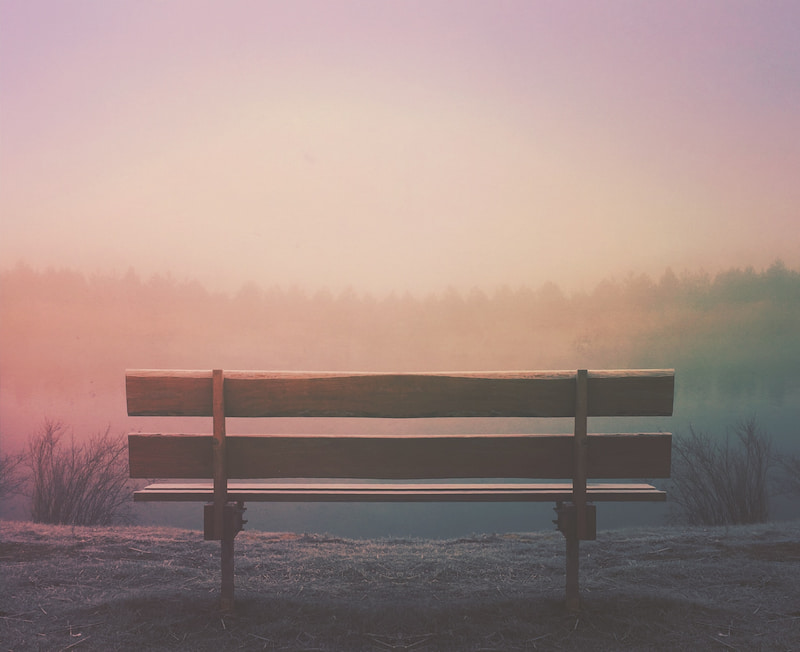
This is a simple mindset shift when it comes to learning how to deal with loneliness, but it makes a world of difference.
Sometimes the loneliness we feel is a byproduct of what society tells us. After all, we are all sold the idea that being in a heterosexual relationship with 2-3 children and a job is meant to be the pinnacle of normality and non-loneliness.
But is it?
Why should we believe and adopt this idea and let it affect OUR happiness?
Just because we find ourselves alone, divorced, widowed, friendless, and so on, doesn’t mean we’ve failed. Nothing in life is permanent, even the position you find yourself in now. So then, why should we allow ourselves to be pressured to feel like there’s something “wrong” with us when everything is temporary.
It is absolutely possible to be alone but not lonely. In fact, some of the most isolated people in the world have also been the most successful and/or happy (think of spiritual ascetics, monks, saints, writers like Emily Dickinson, innovators like Einstein, and artists like Greta Garbo who famously stated “I want to be alone”).
We explore the benefits of solitude more in our book The Power of Solitude.
12. Find an animal companion

If you can’t, don’t want to, or don’t have the time to connect with other people at this point in life, an animal companion is a wonderful way to feel emotionally connected to another living being.
Adopting a dog, cat, rabbit, bird (or whatever you resonate with) from a local shelter is not only an act of compassion, but it ensures that you’ll have another living being to spend your days with.
Not only that, but often animals have a way of reconnecting us back to other humans. Dogs, for example, are a beautiful way of forming connections, even fleeting ones, with other dog owners at the park.
(Bonus) 13. Reconnect with your Soul

Right at the heart and core of loneliness is often a disconnection from our innermost Self.
In other words, often loneliness is not just about having a lack of company, it’s actually a deeper symptom of disconnection from one’s Soul.
When we are disconnected from our Soul we struggle with lethargy, demotivation, depression, and the desire to isolate ourselves from others. This is known as Soul loss, and it’s a common issue in society.
In order to reconnect with your Soul, you will need to practice inner work and Soul work to remove the blocks (in the form of negative beliefs, traumas, and core wounds) that stand in the way of your inner Light.
One powerful way of beginning inner work and Soul work is by starting your own spiritual practice. (And yes, you can still be religious or an atheist and have a spiritual practice – it’s how you define it that matters.) Read more about spirituality to begin the next step in your journey.
***
Loneliness, longing, does not mean one has failed but simply that one is alive.
— Olivia Laing
I hope this article has helped to inspire you to learn how to deal with loneliness better.
Please remember that no matter how isolated you feel, there is always something you can do to feel a little better. And in fact, the likelihood is that someone living in the very same suburb as you right now is feeling something similar. You’re not as alone as you think.
For further reading, I highly recommend that you check out the articles I wrote called Feeling Alone: 13 Ways to Stop Feeling So Lonely and Isolated and How to Embrace Being a Lone Wolf and Walk Your OWN Path.
What has your experience been like with social isolation or loneliness?
For example, have you learned how to deal with loneliness in your own unique way (that hasn’t been shared here)?
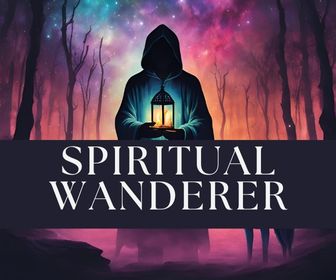
Spiritual Wanderer Course:
Being a lone wolf and a spiritual wanderer is a sacred calling in life – a unique and alchemical path of awakening. You don’t need to feel lost, alone, or stuck on your journey any more. It’s time to meet your soul’s deep needs for clarity, self-acceptance, and empowerment. Let us show you how …
I’d love to hear below!
Three paths to inner transformation – here’s how I can help you go deeper:
1. The Spiritual Wanderer Course: Are you feeling lost, adrift, and unsure of your life's purpose? Gain clarity, focus, and direction on your inner path by uncovering the five archetypes of awakening within you. Learn how to navigate the highs and lows of your inner journey and chart your unique path with 3+ hours of audio-visual content, workbooks, meditations, and a premium test.
2. Shadow & Light Membership: Do you crave consistent support on your spiritual quest? Receive weekly intuitive guidance and learn to embrace your whole self, including your shadow side. Cultivate deeper self-love with our affordable, personalized support.
3. Spiritual Awakening Bundle: Ready to embark on a profound soul-searching adventure? Dive into our collection of essential transformative resources! Explore five illuminating eBooks and seven in-depth journals, plus unlock two special bonuses to empower your spiritual growth.




 $3
$3



I went over this internet site and I believe you have a lot of fantastic info, saved to fav (:.
I have a problem of over thinking
I like to live quite alone, spending much time thinking about everything. Sometimes i cry, after that i feel some sort of calmness. I was 9 when my father died. Every time i stay alone, i use to think of him
I have learned alot of these lessons but I feel alone because I try to be of peace and keep the peace with loved ones. Its hard to keep being catious of their feelings while they are constantly not interested in mine, i am becoming very sensitive and its starting to hurt my feelings. I am perfectly fine alone and have done a lot of the work in this article and felt great about it. What do you do when you grow into a more compassionate person than the person your with. You know they love you but are not willing to learn anything about you. You try and give suggestions as little as information about yourself and what is important to you but they won’t give you even the time of day without making arguments just to tell in a proper manner how you feel. Its becoming hurtful and I have to just not talk to keep the energy clear and calm for them. What about me. I love the person and they love me but they have not been on the same path as me and won’t change i accepted it but when is enough when you notice this person is not capable of listening just to what is important to you?
Laurie
Why do you feel / think this person really loves you? He sounds much like my parents who sometimes said they loved me, but they were never INTERESTED enough in me to pay any attention to what I was feeling, thinking, doing, my dreams, my ambitions, my fears . . . they were “loving” a fantasy they had of me that had little or nothing to do with the “real me.”
It can be extremely hard for us to come to grips with the reality that just because someone says “I love you” doesn’t mean they do, if they are only interested in the tip of the iceberg, the 5% that floats above the water, but not the 95% that’s under the waves, is that really love?
Thanks for sharing this, Luna. This is very helpful!
Greetings from Indonesia.!
Due to This COVID 19 crap I am isolated alone home for more than a week now. I have no partner, I have my child living with my ex. Luckily I can still visit them once or twice a week.. other than that I have no friends and family… no one. Before COVID I was going to work every day, now I am working from home. My tasks do not require much cooperation with my colleagues … so here I am… sitting alone in my suddenly messy home, because I am totally demotivated to clean or cook for myself… damm weekends… I generally like to be alone, but I didn’t felt that lonely before.
I wasn’t going to read this as I don’t feel lonely, but I’m glad I did as I do struggle to be alone with myself sometimes, so there were lots of great tips for me to take on board.
Thank you for sharing this Luna <3 :).
I found so many great benefits of spending time only by my own. First what I realized was that I was able to connect with my spirit guides (Ascended Masters) who wanted to support me and I've gradually developed abilities to communicate with them telephatically. It can actually be quite a challenge to feel lonely while having a good relationship with them :). Our guides support us and share love with us whereas regular people mostly operate on energy feeding mechanisms which I really wanted to get out of. Spending time with other people can make us more prone to absorbing their issues and toxic energies, especially when someone is an empath. And among other people it is hard to even hear ourselves/our intuition because there is such a noise out there. Solitude is wonderful and can be truly transformational if we only chose to be committed to ourselves. Understanding that loneliness is the most important part of the process and trusting the process and ourselves is crutial. And spending time on the inner work to be able to become whole again can eventually lead us to meet out ideal partner, our true love (another whole) so we can live a life beyond what we can imagine :) <3
I think loneliness is when you fell like you have demons inside you that tell you “You aren’t good enough!” or, “Your a mistake!” and, “You will never be good enough!” I fell like that sometimes. I fall in despair. It is not a good thing to fall in. I have those demons inside me. I always feel lonely. I don’t know why tho.
I am only 12 years old tho…. WHY DO I FEEL LIKE THIS!?!?!
Your 12 yrs old… and I was once 12 years old… and felt Incredible loneliness…It doesn’t change as you age… My advice….Find a sports team become a Loyal fan, be around other like minded youngsters…and there you will find a tribe to connect and create a family.
Inside there is a war,neaver a winner, sad but true.
One thing that doesn’t help loneliness is when people reach out on an online platform like this, only to have no ‘reply’ to their comment, while others do receive replies. It tends to start to feel like the dreaded ‘cool’ versus ‘not cool’ groupy thing back at school. I am wondering why you ‘ignore’ some comments and not others. Of course, you don’t have time to reply to everyone at length, but on an article about loneliness, it seems like a bit of a power trip to pick and choose who to say ‘thanks for your comment’ to. An unconscious mistake, perhaps?
wow Thanks so much love this article so much .
everything you wrote is so true and awesome.